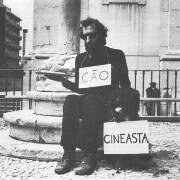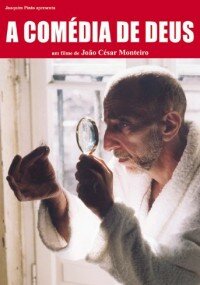Portugal, 1995, Color, 165′ (1995)
João de Deus spends his days quietly. He divides his time between his job at the Paradise Ice Cream Parlour where, to everyone’s satisfaction and delight, he not only carries out his duties as manager, but also invents the house-speciality, the renowned “Paradise” ice-cream; and his home, where he invariably spends his free time alone, either doing the housework or lovingly going through his collection of female, pubic hairs in a treasured album which he calls his Book of Thoughts.
As manager, he takes his responsibility for the well being of his staff, girls from modest backgrounds, very seriously; and his equally conscientious about protecting Public Health, being meticulous about the observance of basic rules of hygiene.
The actual owner of the enterprise, Judite, is very pleased with the way business is going and dreams of a merger with a French company. She counts on João de Deus to favourably impress a well-known French, ice-cream manufacturer who comes from Paris just to try the house-speciality. Not only does nothing come of the meeting, but it turns into a total disaster.
Meanwhile, the behaviour of João de Deus – which had previously been impeccable – shows sudden signs of rather “disturbing” aberration involving a lady architect, Rosarinho, Virgínia…
One fine day, João de Deus meets Joaninha, the green-eyed daughter of the burly butcher on the corner and, after enticing her to his home, not only treats her to a milk bath but also plies her with so many sweets that she has a severe tummy upset, which,
thanks to João de Deus, soon passes.
Her butcher father, alleging a dastardly attack on Joaninha’s virginity, decides to avenge the family honour by a blood bath.
João de Deus is rushed to hospital in a parlous state, but escapes the jaws of death. This time, however, Judite does not take-pity on him; he is fired for just cause.
On his return home, a scene of utter devastation meets his eye: a pile of wreckage, everything smashed to pieces, his precious Book of Thoughts reduced to ashes.
João César Monteiro
(Press Office – Dossier)

